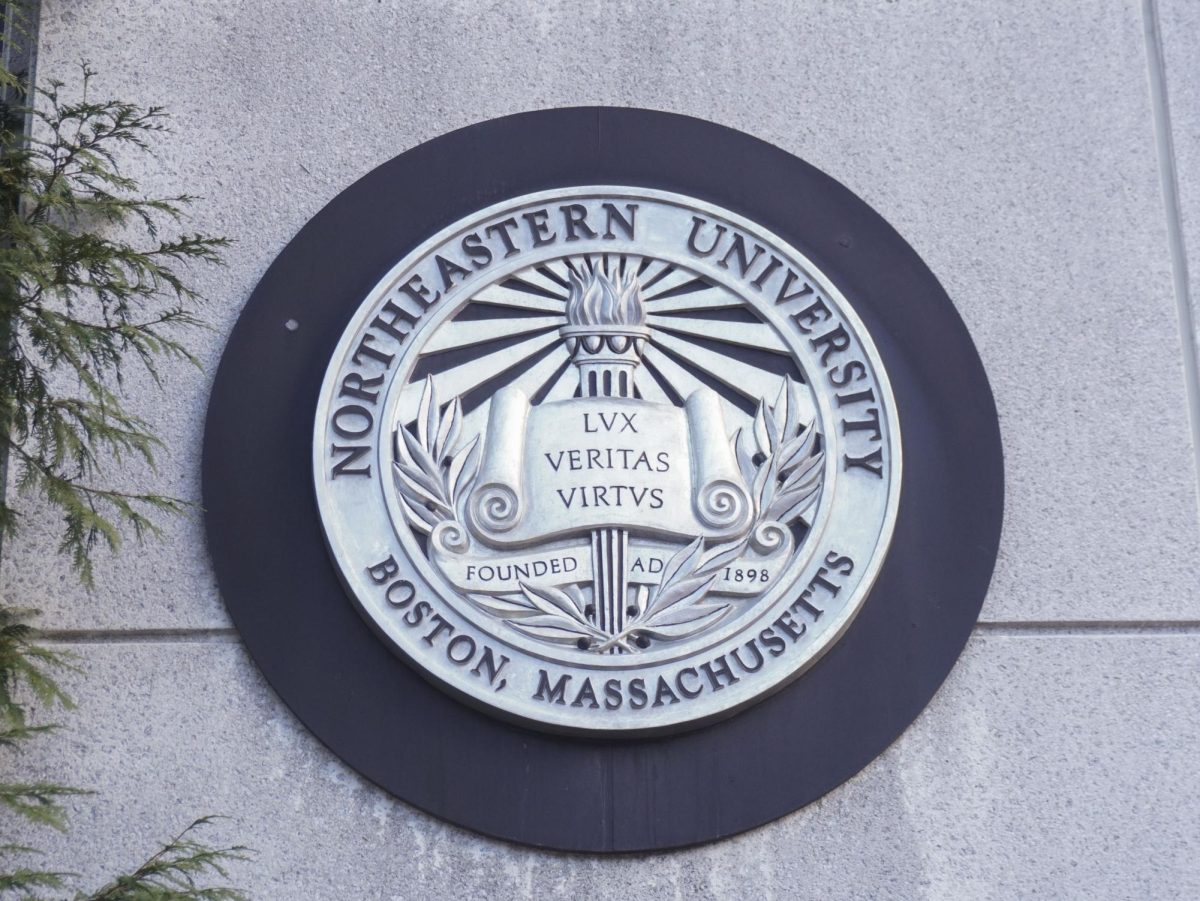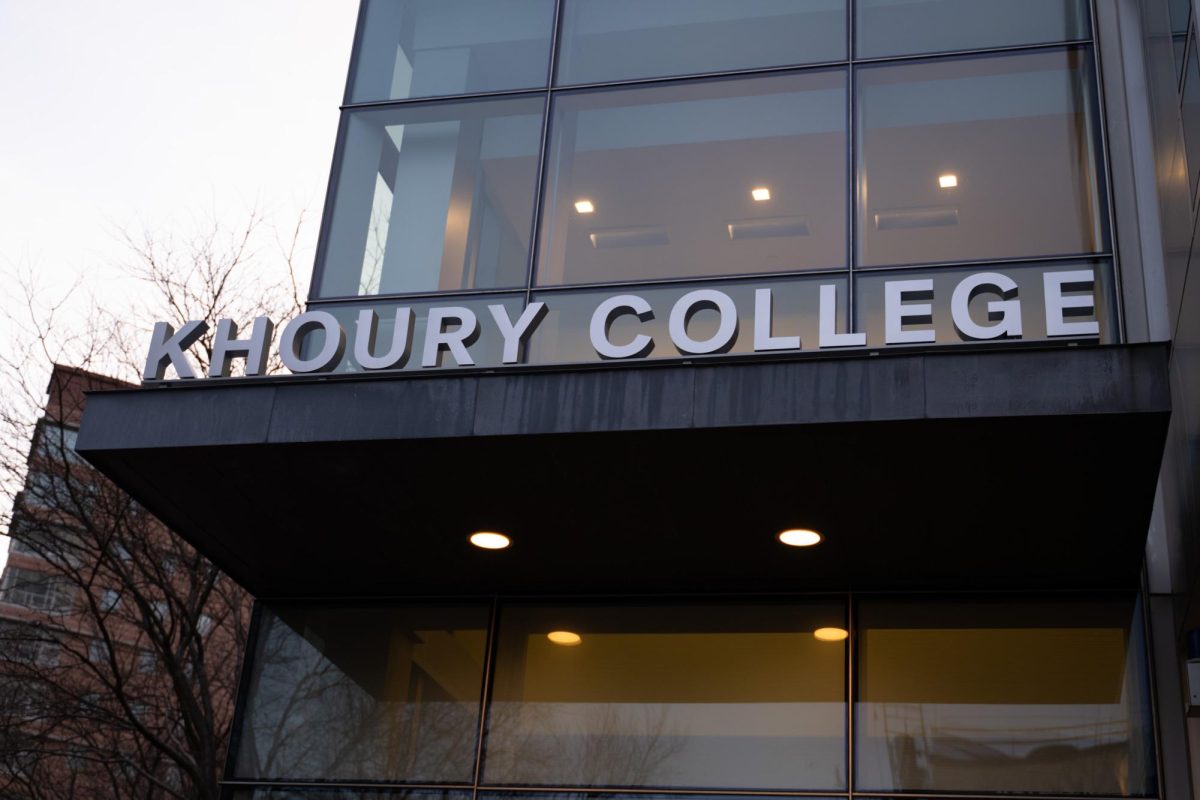By Najla Moussa
Stepping off the elevator and onto the fifth floor of the Behrakis Building, one would think they had just entered Massachusetts General Hospital instead of the Speech Pathology and Audiology clinic at Northeastern University.
The clinic, which moved from Forsyth Street to the Behrakis Building in August, holds state of the art equipment and therapy rooms. Yet, surprisingly enough, few people at Northeastern know about this clinic.
“An employee at Northeastern University took his child, who had speech problems, to Mass. General, which referred him to us. He worked at Northeastern, and he didn’t know that the clinic existed,” said Professor Marjorie North, assistant clinical specialist.
The clinic, which expanded greatly after moving from Forsyth Street, has become recognized in its own right through the referrals of community, doctors, hospitals and Harvard Vanguard.
When the clinic was located at Forsyth Street, they used to have an average of about 20 clients a week. Currently, that number has risen, so that during the winter season, the clinic has 50 clients a week and a waiting list.
In the Speech Pathology Department alone, there are 50 undergraduate and 70 graduate students. This number, Professor North believes, would be greater if more students knew about it.
The clinic is trying to promote its program by sending its undergraduate students, as well as faculty members, to high schools in the area to discuss and promote the major.
“A lot of people don’t even know what Speech Pathology and Audiology is,” said North.
The clinic at Northeastern is one of the few university clinics that works with outside clients. It’s clients include both children and adults, with problems ranging from speech impediments and reading deficits, to people who have lost their ability of speech from gunshot wounds or motorcycle accidents.
Therapy is also affordable at the clinic. A session, which usually runs for an hour once or twice a week, costs $35 per sitting. This price is fixed for both children and adults.
Considering how expensive medical care is, and the number of people without health care insurance, this becomes an ideal place to treat people at a cost most families can afford.
“We make it easy here for people to get help. Anyone can come. They just have to fill out some paperwork, but anybody can get treated,” said Professor North.
The reason the clinic doesn’t charge as much as other places is because the clients are actually treated by the graduate students rather than the certified professionals.
But, don’t be fooled by this fact. The clinic requires the graduate students to be supervised, at all times, by professionals. If the students have trouble treating or working with the client, the supervisor can then interrupt the session and help the student with the client.
Undergraduate students are required to work within the clinic, while graduate students can work with the clinics outside programs.
These programs include the “Language Literacy Program” in Arlington. Graduate students also work in hospitals, nursing homes, pre-schools, voice clinics and special education programs.
Apart from working with outside programs, the clinic also offers a variety of services.
The clinic works with students at Berklee School of Music, making and fitting ear plugs for the students. They also sell hearing aids and offer client evaluations.
Another great feature of this clinic is its labs. The clinic has a pharmacy lab, physiotherapy lab, medical lab and counseling psychology, basically most of the facilities any top-rate clinic would have.
The high tech equipment is not the only mechanism the clinic uses to diagnose and teach clients. It also uses old fashion teaching techniques.
The faculty uses games, which makes the learning process more fun for kids, as well as listening to sound, showing the client where and how to place their tongues, and teaching breathing techniques for clients with stuttering and voice problems.
They also create individualized programs. “We see how hard or how possible it is for the client, and then a faculty member will meet with a graduate student and discuss and set up a program for the client,” Professor North stated.
Part of the clinic’s dedication to helping the community can be seen through their affiliation with “SMILE,” a pre-school in Roxbury.
The inner city school can not afford to have a speech pathologist in their program, and so they asked the clinic to screen their students.
“SMILE” and the clinic ended up collaborating, and a result of that is six of the pre-schoolers at “SMILE” are being treated at the clinic free of charge.
However, the clinic does need funding in order to stay running. Due to that, the clinic does not have many scholarship clients. In general, money is made through the fees charged for the sessions, as well as the evaluations, hearing aids, ear plugs, and any other testing clients request.
Most clients are in therapy for a maximum of three years. Some clients are able to be treated in six months. The ability to treat the clients depends on the client, the problem and the parent support.
“If families do not help their children with their lesson plans, help them practice their speech, then the progress is not as fast or effective as it can be if families were more involved,” said Professor North.
The effectiveness, as well as the positive affect this clinic has had on the community, can be seen through a Halloween party the clinic throws for its clients each year. For the past three years, the clinic has hosted this gathering, and it has been successful for both the faculty and the clients.
The last Halloween party, which took place last Saturday between 12 p.m., and 3 p.m., included 15 children that the clinic treats, as well as many adults. Everyone was required to dress up .
The event, which took the faculty a month to prepare for, took place on the fifth floor of the Behrakis building, inside the clinic, itself.
The therapy rooms were transformed so that each contained a different activity. Some of these activities included face painting, cookie decorating, ghost stories and pumpkin carving.
“We hold the party for many reasons. It gives the children a chance to interact with each other and for the parents to meet. It’s also good for the faculty because we get to observe the clients in a different, more real-world environment and see how they react to things. That’s always helpful to us. It’s also nice goodwill,” said Professor North.
One positive thing that certainly came out of this party tradition was the Parent Support Group, which formed over one of these gatherings.
The Parent Support Group, which consists of the families of the clients, meet up a few times a year with faculty members from the clinic and talk about their concerns.
They also answer each other’s questions, as well as get more information on how to get the best services, the best testing and things as what to expect out of a school program.
“This is a terrifically close department that is always collaborating, and is very comfortable working together,” stated Professor North.









